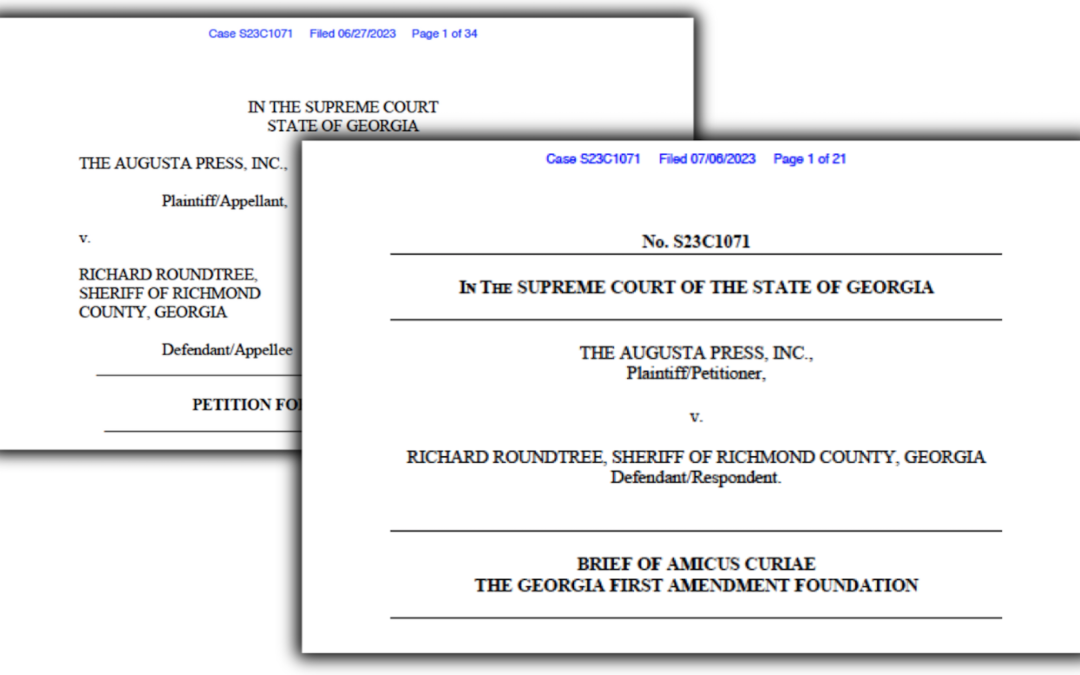In a friend-of-the-court brief, the foundation supports a petition for writ of certiorari filed by The Augusta Press. In The Augusta Press v. Richard Roundtree, Sheriff of Richmond County, the news outlet is asking the state’s highest court to review lower court decisions that essentially enable any police body camera footage recorded in a residential dwelling to be kept secret from the public.
Both The Augusta Press and the foundation argue that rulings by the Richmond County Superior Court and the Court of Appeals of Georgia deprive the public of the ability to review and seek accountability for actions of law enforcement agencies operating in people’s homes.
In addition, they argue that the lower court decisions conflict with the Georgia Open Records Act’s mandate in favor of broad public access to government records and narrow construction of any exceptions.
The news outlet and GFAF also question the “expectation of privacy” rationale for the superior and appellate court rulings. They assert that the right to privacy is outweighed by the public interest in access to government records where a police investigation is pending or where consent is given for police presence.
The foundation’s friend-of-the-court brief was filed by Athens attorneys Clare Norins and Allyson Veile of the First Amendment Clinic at the University of Georgia School of Law. Clinic students Alex Cross and Anyamobi Ananaba contributed to the brief. Norins is director of the clinic and a member of GFAF’s board of directors.
The Augusta Press is represented by Georgia Press Association attorney David Hudson. Hudson, who is based in Augusta, also is a foundation board member.

